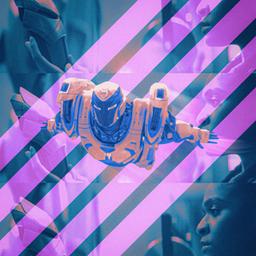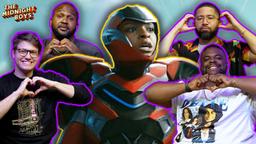
Ironheart, Marvel Studios’ latest TV series, was set up to fail.
In an ideal scenario, the limited series would have closely followed the film it spun off from, 2022’s Black Panther: Wakanda Forever. But for a number of reasons, including the 2023 Hollywood strikes, the studio delayed the show’s release—even though it was ready to go for two and a half years. As a result, Ironheart lost any momentum it could have carried into its story after its protagonist, Riri Williams (Dominique Thorne), made a strong first impression during her introduction in Wakanda Forever.
In the interim, Marvel produced an overflow of inconsistent films and TV shows and gradually lost the attention of its audience. In late 2023, the studio overhauled its TV business after finally admitting that its creative process wasn’t working, placing already developed projects like Ironheart in an awkward position. On top of all that, Ironheart was subjected to another unfortunate round of review bombing by the ever-toxic portion of the Marvel (and Disney) fan base that continues to tank the audience scores of just about any narrative led by a woman (and especially those also led by a person of color).
Ironheart premiered last week, as the studio was going all in on marketing for its upcoming summer blockbuster, The Fantastic Four: First Steps. Between the show’s six-episode structure and its release over just two weeks, it feels as if Ironheart was positioned as an afterthought, a low-profile opening act before a big-screen summer blockbuster. Yet despite all of the factors working against it, the series, which reached its conclusion in Tuesday’s three-part finale, is still an entertaining, if flawed, addition to Marvel’s ever-growing TV library.
Created by Chinaka Hodge and directed by Sam Bailey and Angela Barnes, Ironheart is at its best when it goes small. The miniseries thrives when it narrows its purview to Riri’s life in Chicago, including her relationships with friends and family, as well as the pressure she feels to succeed after growing up as a local legend for her genius. Ironheart features a number of fun heists that use Riri and her tech savvy in an effective way, and her dabbling in a life of crime to achieve her goals helps distinguish Riri’s coming-of-age narrative from its MCU counterparts.
But Ironheart tried to do too much with too little time, focusing on an underdeveloped technology vs. magic conflict for the latter half of the series that strays from the show’s strengths. And like so many MCU TV shows before it, including Ms. Marvel or even the Emmy-winning WandaVision, Ironheart often suffers from its ties to the wider MCU and the studio’s bad habit of ending almost every story with a messy CGI clash.
Ironheart is yet another imperfect limited series from Marvel, but there’s still plenty that it does well. The show currently boasts a critics score of 86 percent on Rotten Tomatoes—one of the highest ratings for any MCU project in Phase 5. Let’s break down my main takeaways from the six-episode season and what could be in store for Riri’s uncertain future.
Surprise Connections to Iron Man and Doctor Strange
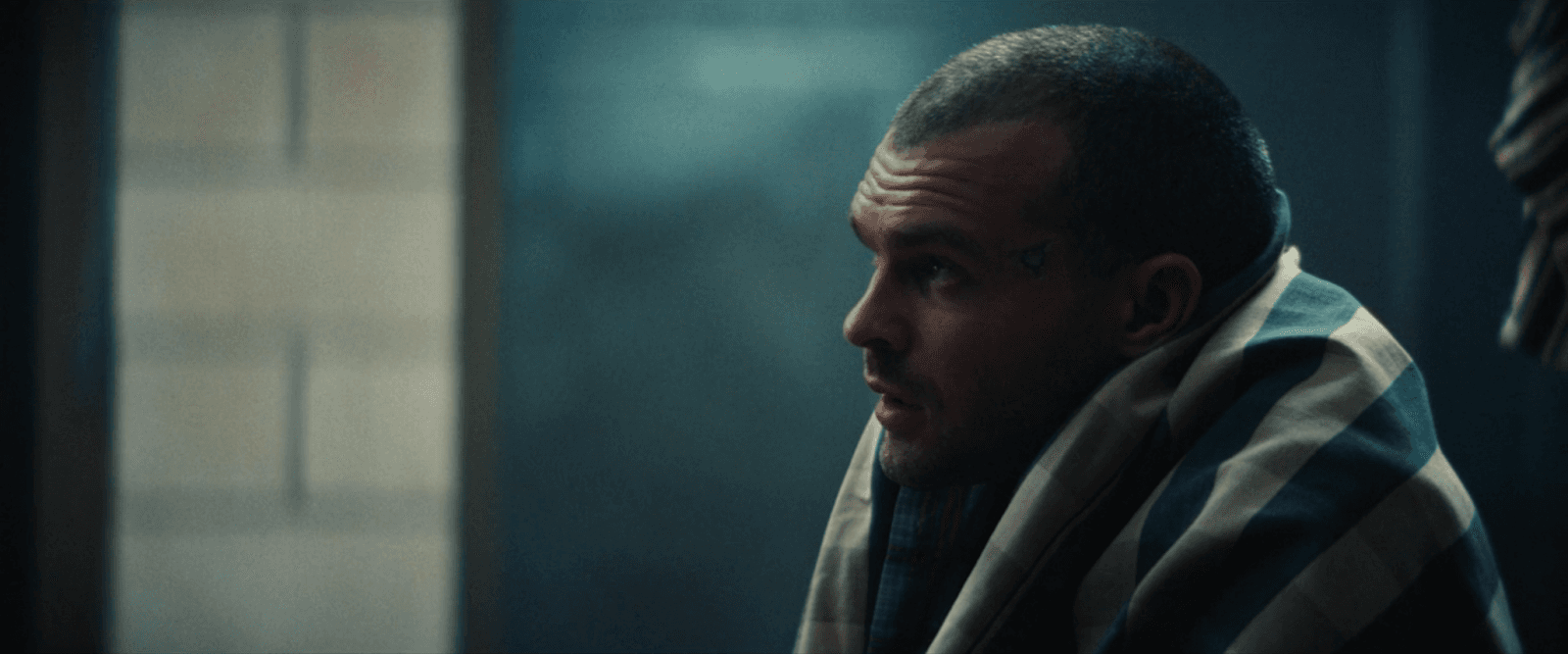
Given that Riri Williams is the spiritual successor to Tony Stark, Ironheart was always bound to have some ties to the Iron Man franchise. From the characters’ mutual brilliance and arrogance, to their studies at MIT, to their homemade suits of armor, Riri is like Tony in many ways. But the miniseries also features a surprising connection to another prominent character from the original Iron Man film: Obadiah Stane, the first villain in the MCU.
When Stane’s son, Ezekiel (Alden Ehrenreich), is introduced as a black market arms dealer in Episode 2, he’s hiding his true identity by using the very fake-sounding name of Joe McGillicuddy. It isn’t until the third episode that he reveals to Riri that he’s the secret child of Stane, the late COO of Stark Industries. The world believes that Stane perished in a plane crash, but he actually died in a battle against Iron Man.
It feels like just a bit of a stretch that Riri and Zeke would be brought together by the black market. Regardless, the unlikely connection that they form adds an intriguing dynamic to the series as this new generation of MCU characters tries to step out of the shadows of their famous predecessors. Although the duo start off as friends, Riri foolishly loses Zeke’s black market tech during a heist. The tech is traced back to him, his real name is revealed to the world, and he’s forced to serve a (very brief) stint in prison.
By the end of the series, Zeke has partially embraced his father’s villainous legacy: With a bit of Parker Robbins’s (Anthony Ramos) funding, Stane arms himself with his own biotech to become a living weapon. The pair of CGI duels between him and Riri are pretty uninspiring, but Ironheart leaves their relationship—and Stane’s future—in an interesting place in the finale after Riri helps free Zeke from Parker’s control.
When Riri asks whether they can be friends again, Stane acknowledges that there’s no going back to the way things were. “I have millions of dollars’ worth of weapons inside me and no idea where to put this anger,” he says. “Go handle Parker. Just … know you and I aren’t done.”
Ironheart also has some unexpected links to another MCU project: Doctor Strange. The 2016 film gets referenced several times over the course of the season, as several of its characters—and events—casually pop up in conversation. If you hadn’t watched any trailers or read about the show ahead of the season, you may have been surprised to see how much of a role magic plays in a tech-centric story about a genius inventor. That’s where these Doctor Strange connections come in.
To defeat the Hood’s (a.k.a. Robbins’s) dark magic, Riri turns to a young sorceress named Zelma Stanton (Regan Aliyah), a character who originally appeared in a Doctor Strange comic book in 2015 as a librarian from the Bronx. Zelma and her mother, Madeleine (Cree Summer), reference Kamar-Taj, the sanctuary for the Masters of the Mystic Arts, as well as parallel dimensions and even Doctor Strange himself. And when Zelma goes behind her mom’s back to help Riri learn more about Parker’s mystical hood and discover a way to destroy it, Zelma theorizes that it may be related to Dormammu, the powerful Dark Dimension entity whom Doctor Strange faces at the end of his origin movie.
“Years ago, there was this rogue sorcerer named Kaecilius, and he used to stan Dormammu and his dark magic,” Zelma explains to Riri. “Look, he ended up with these purple scars all over his body and got these weird visions. Sound familiar? Right. This dude Kaecilius tried to unleash Dormammu on Earth in exchange for eternal life.”
Although Zelma gives a pretty solid plot summary of Doctor Strange, Dormammu ends up being little more than a smoke screen for the real villain who’s manipulating Parker behind the scenes: Mephisto (Sacha Baron Cohen). MCU callbacks like these have long been a staple of Marvel Studios projects that evoke the interconnected spirit of the comics, and they can work well when they naturally fit into the story (as with the introduction of Stane). Yet they can also serve as distractions that weigh down individual narratives with unnecessary lore.
The mystical side of Ironheart doesn’t work quite as well as the tech elements, even if the series (unintentionally) has helped set the stage for Doctor Doom’s eventual fusion of technology and magic in the upcoming Avengers sequels. It may have opened up other narrative pathways for Marvel Studios, too, including a potential series in Strange Academy, even though its development was reportedly paused earlier this year.
Strange Academy would likely be a loose adaptation of a Marvel Comics series created by Skottie Young and Humberto Ramos in 2020 in which Doctor Strange opens a school to train young sorcerers, including Zelma, in the mystic arts. The stinger for Ironheart’s season finale focuses, in part, on Zelma. Sometime after his climactic fight with Riri, Parker pays Zelma a visit at her mom’s shop, requesting not just some magical assistance, but “Supreme-like” help. The stinger ends with Parker rather cheesily asking her whether she’s up for “a little abracadabra” and Zelma giving a shrug of a response that certainly seems like a soft “yes.”
It’s always possible that this potential Zelma-Parker team up could be a tease for another MCU project that hasn’t been discussed yet or—more likely than not—that it was originally written to set up a story line in the show’s second season. But considering that this series was created before the studio’s major TV overhaul, along with the news of Strange Academy’s halted development, this could be yet another case of a Marvel stinger that will likely lead nowhere.
Introducing: Mephisto
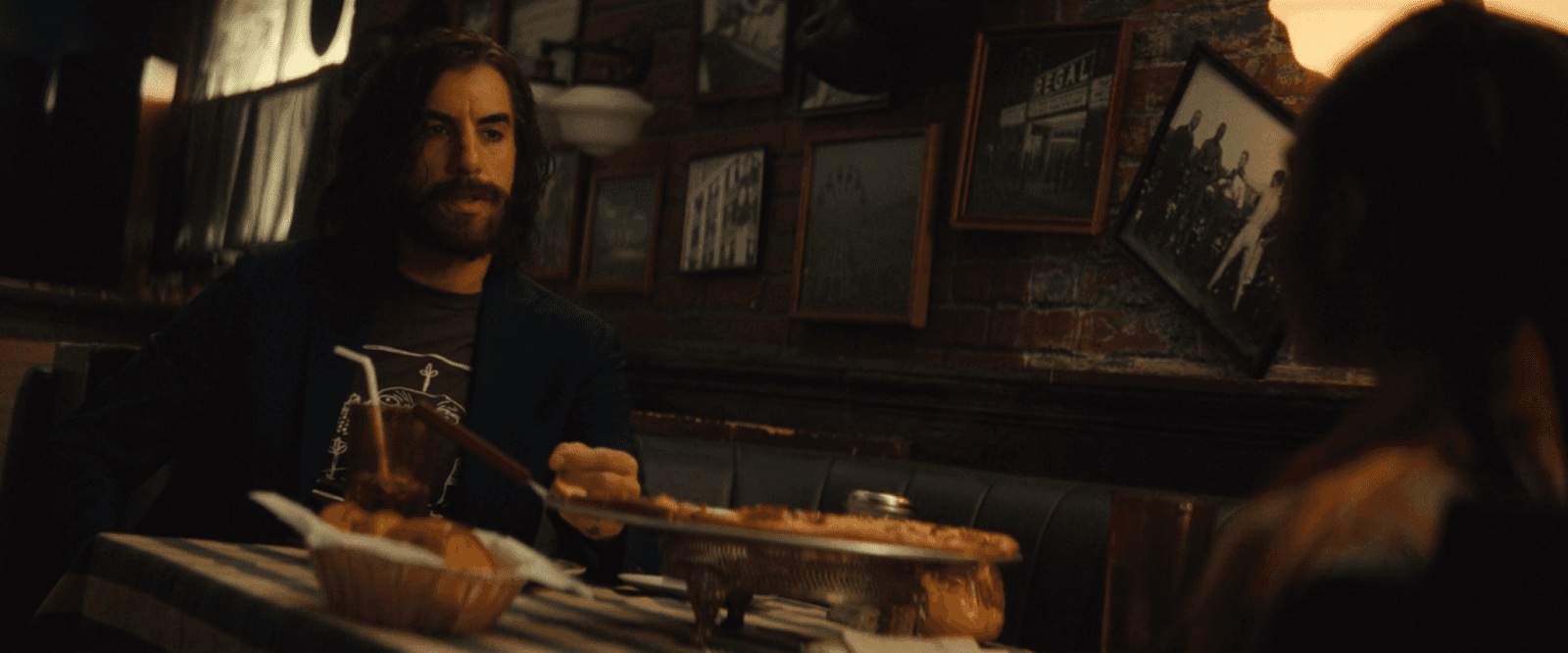
It’s been more than four years since MCU fans convinced themselves, week after week, that Mephisto would be making his grand entrance on WandaVision. Of course, that never happened—and it was probably for the best. (WandaVision showrunner Jac Schaeffer wasn’t even familiar with the Marvel villain when she was making the 2021 series.) When Schaeffer followed up her hit TV show with the 2024 spinoff Agatha All Along, it seemed as if Mephisto would be introduced at last. And indeed he was, but only in the form of a name-drop: A character suggests that Agatha Harkness’s son may be an “agent of Mephisto.” (As Schaeffer explained in an interview with The Hollywood Reporter, even that small reference came at the behest of Marvel Studios executives: “It is a mention that is larger than me and this show. It is the larger Marvel-ness of it.”)
In Ironheart, Mephisto finally arrives in the MCU in earnest, and Baron Cohen is a perfect fit for the role. The English actor delivers a fun, chaotic performance as the devilish villain, switching up his accent for no apparent reason. But with limited screen time, all of which comes in the season finale, Mephisto’s emergence occurs a little too late in the series for Ironheart to capitalize on the character.
Mephisto’s introduction at the end of the season is somewhat reminiscent of how Jonathan Majors’s He Who Remains was used in the thrilling final chapter of Loki Season 1. But the key difference in their usage rates in the two finales is that the Kang the Conqueror variant was the star of that climactic Loki installment; the episode centered on his appearance after the mystery of his identity had lingered across the entire season. Loki avoided the typical CGI slugfest that concludes most MCU stories and mostly focused on a bunch of people talking instead—and its finale remains one of the best last acts of any MCU narrative. Crucially, Loki also had a second season that built its story around He Who Remains and his variants, thereby further developing the character(s).
In the Ironheart finale, Mephisto’s appearance is more of a cameo than the main attraction. The series leans into some of Marvel Studios’ worst tendencies in an overstuffed episode that climaxes with another rough CGI battle, this time between Riri and Parker, the latter of whom finally gets fully consumed by the dark magic of his red hood. Mephisto appears in a pair of scenes in which he’s speaking to Parker, as well as in a crucial closing sequence in which he cuts a deal with Riri. However, Mephisto’s arrival doesn’t land as well as it could’ve because of the minimal groundwork the series had laid to set him up as a key villain and because of how much else occurs in the finale, in which Riri also fights two other antagonists.
Ironheart teases a bigger role for the menacing Mephisto, who chooses Riri as his next ambitious human to manipulate. At the end of the finale, Riri makes an agreement with Mephisto that somehow brings her best friend, Natalie (Lyric Ross)—the real Natalie, not just her AI construct—back to life. But just before the credits begin, the toll of Mephisto’s dark magic starts to leave its mark on Riri’s arm—just as it eventually did across Parker’s entire body.
If Ironheart receives a second season, the series would have plenty of time to expand on Mephisto and his origins, and this cliff-hanger would at least work better because there’s more story to come. But it’s unclear whether Ironheart will have that opportunity to grow. If it doesn’t, the series will conclude as a frustrating, incomplete story that wasted its final chapter on plotlines that may never be resolved.
The Future of Riri Williams and Marvel Television
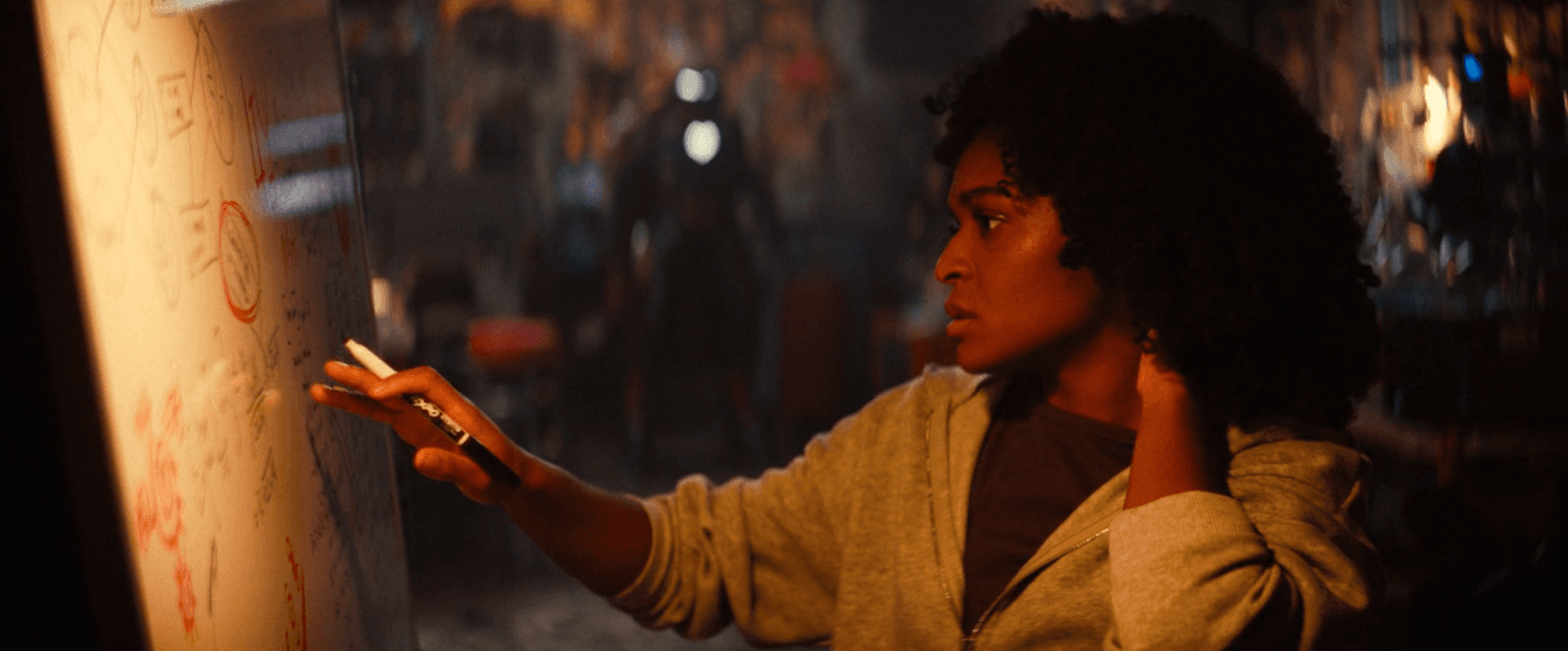
Ironheart would benefit from a second season under the new direction at Marvel Television—which really just boils down to embracing a more traditional approach to making TV. In May, The Hollywood Reporter reported that the studio was in “wait-and-see” mode with the potential multi-season status of Ironheart and the MCU series set to follow it later this year, Wonder Man. But Marvel is looking to move away from its typical limited-series structure. And as Marvel’s head of television and animation, Brad Winderbaum, noted to THR, shows will, in many cases, not feature A-list Avengers stars.
“Producing shows with marquee names, it made it really challenging to produce second seasons; the margins on TV are smaller,” Winderbaum explained. “Looking to the future, does it mean that we won’t have big Avengers names? No. They may not be the titular character of the show, but they can still make appearances.”
As the article outlines, this has been a transition year for Marvel Television, with the first season of Daredevil showcasing the studio’s new TV model, while Ironheart and Wonder Man represent the final series that were produced before the overhaul.
Despite its many shortcomings, Ironheart is a solid candidate to be renewed for a second season, especially since the finale leaves its characters’ stories unfinished. Unless Marvel simply tries to wave away everything that just happened to Riri (and her associates), it would be difficult to include her in any future crossover projects, like the Avengers films or the unconfirmed Young Avengers project, without picking up those threads. It might be in the studio’s best interest to embrace this new era of TV storytelling and move past Ironheart, rather than attempt to fix the mistakes of the show’s first season. On the other hand, it would be a shame to see the potential of Thorne’s character wasted because of Marvel Studios’ continued struggles to get back on track.
Time will tell whether Ironheart’s future will be lost in the studio’s TV reset or whether Riri will get the chance to fight her demons another day.
